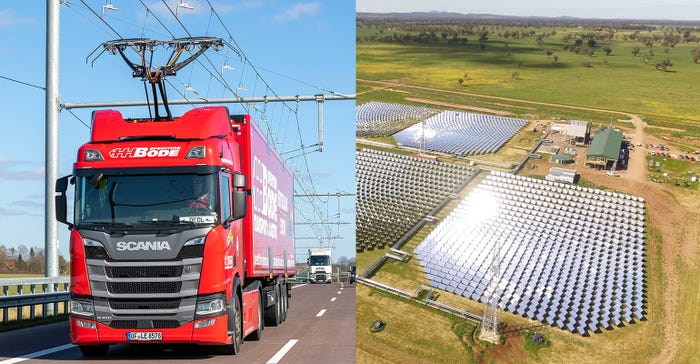Better than Batteries? Researchers Explore Alternatives
Two new projects explore energy transfer that’s independent of the battery's pluses and minuses.
April 24, 2023

Generally, when we look at the worlds of electric mobility or renewable energy, the focus is on battery technology, and rightfully so. For many of these technologies, the limiting factor of many applications often is the battery itself. Consider the electric vehicle (EV): No matter how well designed every other part of the car is, when the battery dies, the car is useless. For this reason, many people in many industries invest much of their time into how to make better batteries, ones with greater capacity, safety, and sustainability
However, outside of this large majority of researchers focusing on battery technology exists those who are looking at things a little bit differently. In specific, there has been a growing trend of research into battery alternatives, where people are exploring ways to take traditionally battery-powered use cases and reimagine them without the battery.
While we at Battery Technology love batteries - sometimes, even we must admit that batteries are not always the best solution. In this piece, we’ll take a look at some of the recent news surrounding alternatives to batteries in a variety of industries.
Overhead Cables for E-Mobility
One technology that is severely limited by the performance of existing batteries is long-distance e-mobility. Specifically, the development of battery-powered electric freight trucks has proven difficult, as existing batteries don’t have the capacity needed to meet the long distances required by these vehicles.
There has been significant interest in overhead cable line technology as an alternative to battery power for freight trucks. In this technology, the trucks are attached to an overhead cable that delivers continuous power to the vehicle, effectively resulting in an infinite range without the need to stop and charge a battery.
Recently, researchers from the Georgia Institute of Technology published a new study in which they analyze the sustainability benefits associated with cable line-powered freight trucks. In the study, the researchers found that both battery-powered electric vehicles and overhead cable vehicles offer greenhouse gas emissions that are 2.5x less than conventional diesel freight trucks.
However, an important consideration for overhead cable power delivery is the source of the electricity being sources. For maximal sustainability benefits, the researchers tell us that it is imperative to ensure that the power being supplied to the grid comes from renewable and clean sources. If this is the case, the researchers predict that, once they achieve widespread adoption, overhead cable trucks will be more environmentally friendly than battery-powered solutions.
Solar Thermal Storage
When we think of traditional batteries, we think of devices that store electrical energy. In Australia, however, researchers are considering an alternative to electricity storage called thermal storage. As implied by the name, thermal storage works to store energy as heat, as opposed to storing energy as electricity in conventional batteries.
The impetus to consider thermal energy storage comes from the fact that many industrial processes, such as the combustion of fuels, require high temperatures to function properly. Instead of converting other forms of energy into heat for these processes, it is a better idea to store heat directly and then use it as needed.
Thermal energy storage, as done in Australia, is accomplished through the use of a large array of mirrors that collects and directs the sun’s energy. This energy is then directed towards a hot storage unit, which collects the sun's heat in a heat-transfer fluid, generally molten salt, which stores the heat energy. Then, when that heat is later needed for industrial processes, it can be extracted directly as heat, saving energy by avoiding the inefficiencies associated with energy conversion.
To further pursue this technology, the federal government of Australia is supporting the construction of a 30MW concentrated solar thermal plant in Port Augusta. The project will result in ten hours of thermal energy storage and will help produce more than 7000 metric tons of renewable methanol each year.
Click below to see more details on each of these projects.
About the Author(s)
You May Also Like





